A Shifting Landscape for Private Equity Hiring
A flashpoint has arrived in the private equity investor hiring market. Rising from the aftershocks of the pandemic, a new cohort of investment professionals, shaped by remote-only onboarding and limited in-person mentorship, is stepping into bigger roles. This unprecedented shift coincides with firms reversing hybrid work policies and embracing full office presence, just as waves of global economic turbulence, prompted by renewed “Trumpanomics,” unsettle Private Equity fundraising sentiment.
My longstanding view has been that pandemic-era disruptions would not simply vanish; they would echo in professional development pipelines and bring a bumpy few years for the talent marketplace. In the current cycle, a more complex challenge has emerged: people who trained during lockdown conditions, often far from the usual in-person analyst programmes, are themselves passing on that truncated knowledge. The ripple effects are already testing workforce stability.
A Generation of Remote-Only Mentors
Soon after COVID-19 disrupted office routines, wave upon wave of new employees found themselves onboarded remotely. It seemed unremarkable at first; many firms pivoted successfully. However, not everyone managed to replicate the close-proximity training once delivered spontaneously over a nearby desk. This “Zoom-born” generation missed the chance to absorb institutional insights from mentors working side by side. They are now expected to shape the next wave of recruits, yet some businesses observe a skills gap that is already lowering team performance.
Hiring has also become a heavier burden for many funds, with a recurring theme emerging around the volume of candidates who interview unsuccessfully, likely a reflection of inconsistent technical knowledge and misaligned expectations.
From my perspective, the real concern is that the next generation must be trained by individuals who never fully learnt in the conventional sense. The “COVID class” has, to their credit, managed to navigate a world of uncertainty well. Yet the reality is the foundational knowledge we once took for granted has slipped through the cracks, and the effects of this will be felt for a while..
Return-to-Office: The New Underlying Pressure
In a reversal of “remote work forever” pledges, many organisations are telling employees to return to the office. Among HR professionals, the main reason given is real-time collaboration, which fosters on-the-spot mentorship and can’t be fully reproduced digitally. Yet for many staff members whose work-from-anywhere preferences have been overruled, the forced return brings discontent. Retention as a result has been challenging funds face a restless professional cadre.
Furthermore, companies that once publicised flexible schedules as a unique benefit are now shifting course, creating uncertainty over how the workplace will function going forward. In particular, non-investor hires often resist returning onsite, while most investors continue to expect some measure of flexibility, which in turn presents a clash with leadership views that complicates hiring processes. This tension heightens strain on staffing pipelines and makes it harder to attract top-tier candidates.
Private Equity: Fundraising Sentiment Takes Another Hit
A modest optimism had circulated in private equity circles, suggesting fundraising was on track for a slow yet steady climb. Then the new Trump administration introduced fresh tariff rhetoric and populist measures, raising fears of a slump in global investment flows. Private Equity funds that were already uncertain about closing their next rounds may need to extend timelines, leaving professionals mired in a “fewer deals” scenario. The result for hiring is clear: the next generation of investment professionals may not gain the vital hands-on experience they require, weakening an already fragile talent pipeline.
Mid-level Directors and Partners find themselves with fewer transactions, or in some instances, running out of dry powder to deploy, resulting in lower real deal exposure and reduced time alongside seasoned veterans to develop skills. Should the fundraising environment stay rocky, the learning curve in dealmaking may well flatten. Meanwhile, as certain funds struggle with fundraising, candidates are increasingly drawn to alternative funds that still boast ample capital. However, many of those professionals lack the experience to secure the most sought-after roles in the market, resulting in a relative shortage of fully qualified talent.
Talent Spillovers and Market Churn
All of this—ranging from COVID-related knowledge gaps to the forced return to offices and erratic private equity fundraising, fuels churn in the hiring landscape. Some might call this healthy, viewing it as staff “voting with their feet.” From my vantage point, though, we risk losing critical sector expertise in the rush. Many firms remain wedded to traditional hiring practices, without a ‘plan B’ in the form of talent from alternative markets. According to my quarterly data on market moves in Europe, roughly 90% of new hires come from one of two sources: other funds or investment banking.
Summary
What does it all mean for hiring trends in the months ahead? If I had to hazard a guess, it would be that the market is set to be more volatile and challenging than it has been in over a decade. Here is why:
New professionals, many of whom trained largely online, are responsible for inducting and coaching the next cohort. We have yet to see if that training produces the same quality of personnel once nurtured by in-person mentorship. I think the results speak for themselves, but firms need to be aware of how they may adapt their hiring practices as a result.
Expectations are zigzagging between flexibility and a return to the office, leaving both HR teams and employees uneasy. The result is rising turnover in a market already tight for advanced talent. Firms should ensure they are clear and obvious about their expectations, as well as the benefits they offer, as any lack of transparency will cause them to lose talent.
Confidence in Private Equity fundraising was improving, but “Trumpanomics” has unsettled it again, forcing funds to stall or reduce new hires. That means fewer opportunities for building expertise, ironically diminishing the supply of well-trained professionals. Firms providing great training and learning opportunities will win out in retaining the very best talent.
Nothing is predestined, however, and I believe careful leadership, paired with resourceful training models, can steady these uncertain times. Structured mentorship programmes and solid internal learning initiatives could partially compensate for the loss of in-person knowledge-sharing. Tapping into less conventional talent streams may also be beneficial, attracting a fresh cadre of highly motivated individuals.
We could see an intense hiring climate, rife with lateral moves and stiff competition for a limited pool of experienced experts. There is also the danger of institutional knowledge scattering, leaving a dearth of strong mid-career mentors. Conversely, should firms decide to invest significantly in training and collaborative knowledge exchange, they may well foster a more capable generation of professionals, people who turn adversity into an opportunity for innovation.
Stay tuned. The pace of change is likely to remain swift indeed.
.png)
.png)
.png)
.png)
.png)

.png)
.png)
.png)




Connect with us